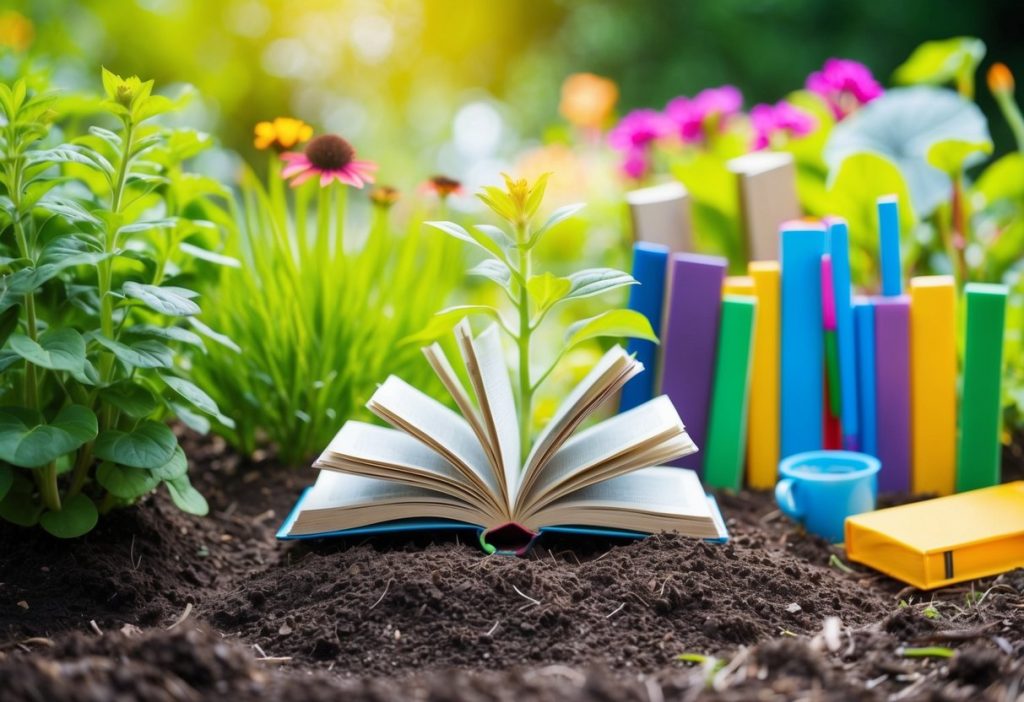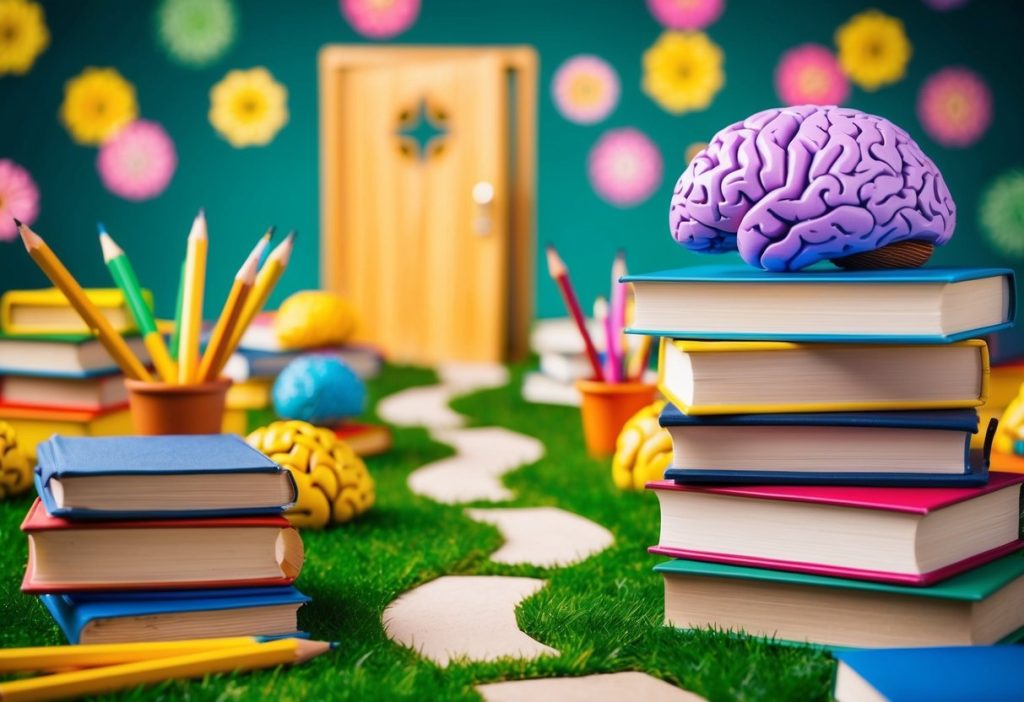Cultivating a lifelong passion for learning is essential in a rapidly changing world. To ignite this passion, it is crucial to foster curiosity and engage learners with inspiring experiences.
By encouraging a love for exploration, individuals can adapt, innovate, and thrive throughout their lives.
Curiosity is the driving force behind effective lifelong learning. When learners feel excited and eager to discover, they become more open to new ideas and experiences.
This approach not only enriches their knowledge but also enhances their confidence and personal growth.
Creating an environment that nurtures this curiosity can transform minds. Educators and mentors play a vital role in shaping how individuals interact with knowledge.
By demonstrating enthusiasm and a commitment to learning, they can inspire others to embrace a continuous journey of discovery.
Foundations of Lifelong Learning

Creating a strong foundation for lifelong learning involves nurturing curiosity, ensuring quality instruction, and developing a growth mindset. Each of these components plays a crucial role in igniting a passion for learning that can last a lifetime.
Fostering Curiosity and Inquiry
Curiosity is the driving force behind lifelong learning. It encourages individuals to explore new ideas and ask questions.
Educators can foster curiosity by creating an environment that values inquiry. This can include hands-on activities, open-ended questions, and real-world applications.
Encouraging students to pursue their interests can lead to deeper engagement. When learners are interested in a topic, they are more likely to invest time and effort.
This intrinsic motivation is essential for maintaining a lifelong passion for learning.
Practicing critical thinking skills is also important. It helps learners analyze information and draw connections between concepts.
Quiet environments that invite exploration can enhance curiosity and promote continuous learning.
The Role of Quality Instruction
Quality instruction is vital for effective lifelong learning. Educators must be skilled in their subjects and capable of engaging students.
Effective teaching methods include differentiated instruction, which caters to different learning styles and paces.
Feedback is another critical element. Timely and constructive feedback helps learners understand their strengths and areas for improvement.
This interaction encourages dialogue and fosters a supportive learning environment.
Furthermore, incorporating technology can enhance the learning experience. Online resources and interactive tools can make learning more accessible and engaging, allowing learners to connect with global knowledge.
Developing a Growth Mindset
A growth mindset is essential for cultivating lifelong learning. Individuals with this mindset believe their abilities can improve with effort and practice.
Educators can nurture this mindset by emphasizing resilience and the value of learning from mistakes.
Workshops and activities that focus on goal-setting can also help. When students set realistic and achievable goals, they learn to appreciate progress over perfection.
This perspective encourages persistence in the face of challenges.
Lastly, sharing stories of success and failure can inspire learners. Examples of individuals who overcame obstacles highlight the importance of a growth mindset and reinforce the idea that learning is a continuous journey.
Strategies for Personal and Professional Growth

Personal and professional growth is vital for achieving long-term success and fulfillment. Implementing specific strategies can lead to continuous improvement and enhance intrinsic motivation. Embracing play and risk-taking can further open doors for creativity and innovation.
Continuous Learning and Improvement
Continuous learning is key to both personal growth and professional development. Individuals should actively seek out new knowledge through courses, workshops, or online resources.
Setting aside dedicated time each week for learning can solidify this habit.
Self-reflection is also essential. Regularly assessing what one has learned helps identify areas for improvement.
This process creates a pathway for continuous improvement. Practicing skills in real-life situations further enhances retention and application, leading to better performance.
Creating a learning plan with specific goals can keep progress on track. By monitoring achievements, individuals can stay motivated and recognize their growth.
Cultivating Intrinsic Motivation
Intrinsic motivation drives individuals to pursue knowledge for its own sake. This internal desire leads to deeper engagement in learning activities.
To cultivate this motivation, one should focus on personal interests and passions.
Setting personal learning goals allows a sense of ownership in the process. Engaging in activities that spark curiosity can lead to enjoyable learning experiences.
Additionally, connecting learning to real-life applications enhances significance. When individuals see how knowledge applies to their lives, their interest and commitment grow.
Recognizing small achievements can also boost confidence and strengthen intrinsic motivation.
Embracing Play and Risk-Taking
Incorporating play into learning can spark creativity and innovation. Playful approaches encourage exploration and experimentation.
They allow individuals to think outside the box and discover new ideas without the fear of failure.
Risk-taking is equally important for growth. Taking calculated risks can lead to unexpected opportunities and breakthroughs.
Encouraging a culture where experimentation is accepted allows individuals to learn from their mistakes. By altering their mindsets toward viewing challenges as opportunities, a more resilient approach to growth emerges.
Together, play and risk-taking contribute to a more vibrant and dynamic learning environment, essential for ongoing personal and professional growth.
Cultivating Passion and Resilience in Learning
Building passion for learning and resilience in children is crucial for their development. Fostering these qualities empowers children to become lifelong learners who embrace discovery and challenges.
Building Self-Esteem and Resilience
Self-esteem plays a key role in a child’s willingness to face challenges. When children feel good about themselves, they are more likely to take risks in their learning.
Positive reinforcement from teachers and parents can boost self-esteem.
Encouraging children to set achievable goals can further build resilience. When they accomplish these goals, they gain confidence. If they face setbacks, finding ways to cope allows them to learn from failure.
Promoting a growth mindset is also important. This mindset helps children understand that abilities can improve with effort.
Such understanding prepares them for the ups and downs of learning, making them more resilient.
Igniting a Love for Learning
To ignite a love for learning, it’s essential to make education engaging. Hands-on activities, interactive projects, and discovery-based learning captivate children’s interests.
When children enjoy what they are doing, they are more likely to develop a passion for learning.
Allowing children to explore their interests fosters autonomy. This exploration makes learning personal and meaningful.
Incorporating storytelling and real-world connections can also be effective. When children see how knowledge applies outside the classroom, they feel more curious.
With this curiosity, they become motivated lifelong learners who seek continuous discovery.



